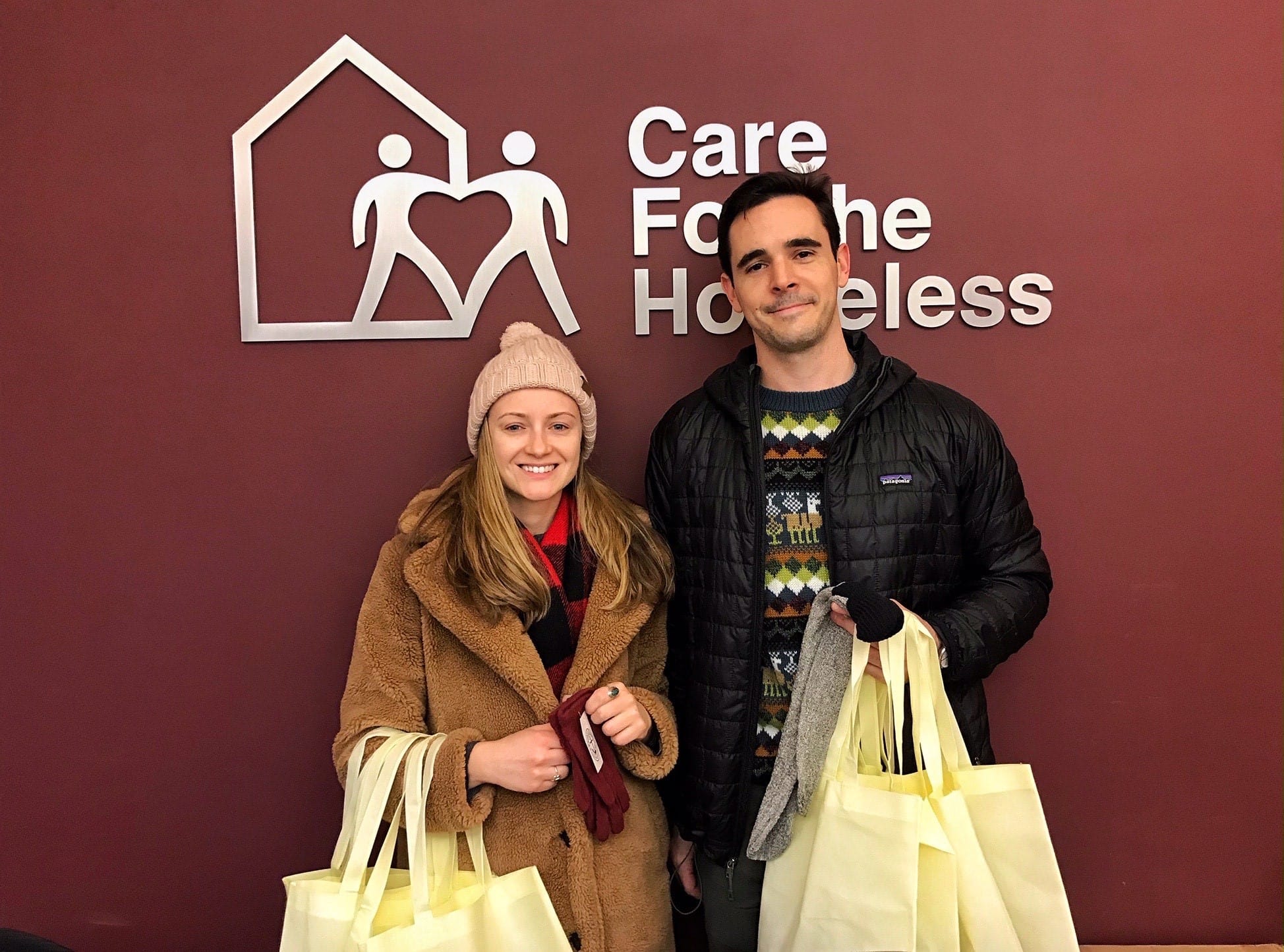Physician Assistant Student Cory Wright Spearheaded Project to Help NYC’s Homeless This Winter
Wright’s Passion for Helping Others Prompted the Donation of 85 Winter Kits to Those in Need

Compassion, emotional intelligence, empathy and respect for others are all important soft skills required by Physician Assistants (PAs) seeking to excel in today’s healthcare environment. We recently spoke with School of Health Sciences PA-Manhattan student Cory Wright, class of 2022, about why he chose to initiate a fundraising initiative to give back to NYC’s homeless.
How did you launch the initiative to for Care For the Homeless and how did you get other students involved?
We started thinking about the fundraiser after hearing a psychosocial lecture about underserved populations that we will be encountering as primary providers. Professor Middleton and Professor Varney expressed how dimischaracterized NYC’s homeless population is and explained how difficult it is to provide preventative care to patients who don’t have permanent residences. We researched organizations that matched the values we were hoping to emulate and decided on Care For the Homeless because they combine outreach with basic medical services. We focused on assembling 85 winter kits when we heard that winter hats, gloves and socks were the most sought-after items. We collected money from the class, which we then used to purchase bulk items online, put the kits together in canvas tote bags and deliver them to the site. We all share the same desire to help our neighbors and make a difference, so it was easy to get everyone in our class involved!
Why was it your personal mission to lead your class in donating to such an important cause?
As a Connecticut native who moved to New York to attend college here, it was overwhelming to see that you cannot walk a city block without stumbling over someone who is homeless. While this problem seems almost impossible to solve, my fellow students and I felt we could make a significant difference through this initiative and we're proud to donate materials that we knew were vital for surviving cold winter months.
What role does empathy play in the daily role of a PA?
You can’t successfully work with different kinds of patients without empathy and being understanding of their needs and issues. It is important for physician assistants, who often have more time to sit with patients than doctors, to develop as much empathy as they can and express it in every interaction. I don’t believe this vital skill is something you either have or don’t have. I think you can learn to develop empathy and acting on it, through opportunities to donate to charity and help someone who is less fortunate than you can help grow your “empathy muscle.”
Why did you choose to pursue your higher education at Touro and what are some of the skills you’re learning in the classroom that you think will help to advance your career?
After being accepted to a few schools, I chose this program located in Manhattan because of the opportunities the city offers. While studying here, I have been able to see a wide range of illnesses and injuries and will be exposed to medical issues here that I likely wouldn’t see elsewhere. Learning soft skills like interviewing, handling stress, staying detail-oriented, being caring and listening intently were the focus initially during my studies here, and I know I will always leverage them throughout my career. Addressing personal biases and leaving them at the door, as well as being culturally competent, is also critical to becoming a stellar PA and I hope to embody these qualities as I continue to move forward on my career path in medicine.

